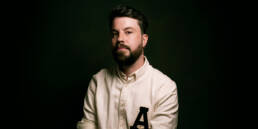
Belgian composer Hannes De Maeyer is hands down one of Europe’s most versatile composers. To be convinced of this fact, one need look no further than his gorgeous soundtrack for the Belgian war drama ‘Torpedo’, which summons the flair of old Hollywood war scores; or ’Gangsta’, a thriller imbued in 80s nostalgia with its old-school electronic sonic world; or the tense soundscape he crafted for the Amsterdam-set crime series, ‘Women of the Night’.
As it turns out, 2020 is a busy year for Hannes and he has a few exciting upcoming projects up his sleeve. He re-teamed with his long-time collaborators, Adil El Arbi & Bilall Fallah (‘Bad Boys For Life’), for ‘Rebel’, which is set for release in 2022, ‘The Racer’, which was selected for this year’s SXSW and will premiere in Belgium theatres on 9 September, as well as the sequel to ‘Immenhof – Das Abenteuer eines Sommers’, titled ‘Immenhof – Das Grosse Versprechen’.
Tell me about your beginnings as a media composer. Have you always wanted to write music for film and TV?
I started learning the piano when I was a kid. I wanted to play the drums but my parents didn’t let me because I was already making a lot of noise on the pots and the pans. [laughs] But after about five years I did also learn the drums.
I also studied French horn, but then I was already in the conservatory in Ghent so I didn’t have much time to practice enough. I was more composing and stuff. I had to let that instrument go, but I’m still a huge fan of the French horn. But yeah, I was always interested in movies in general. I was and still am a huge Disney fan.
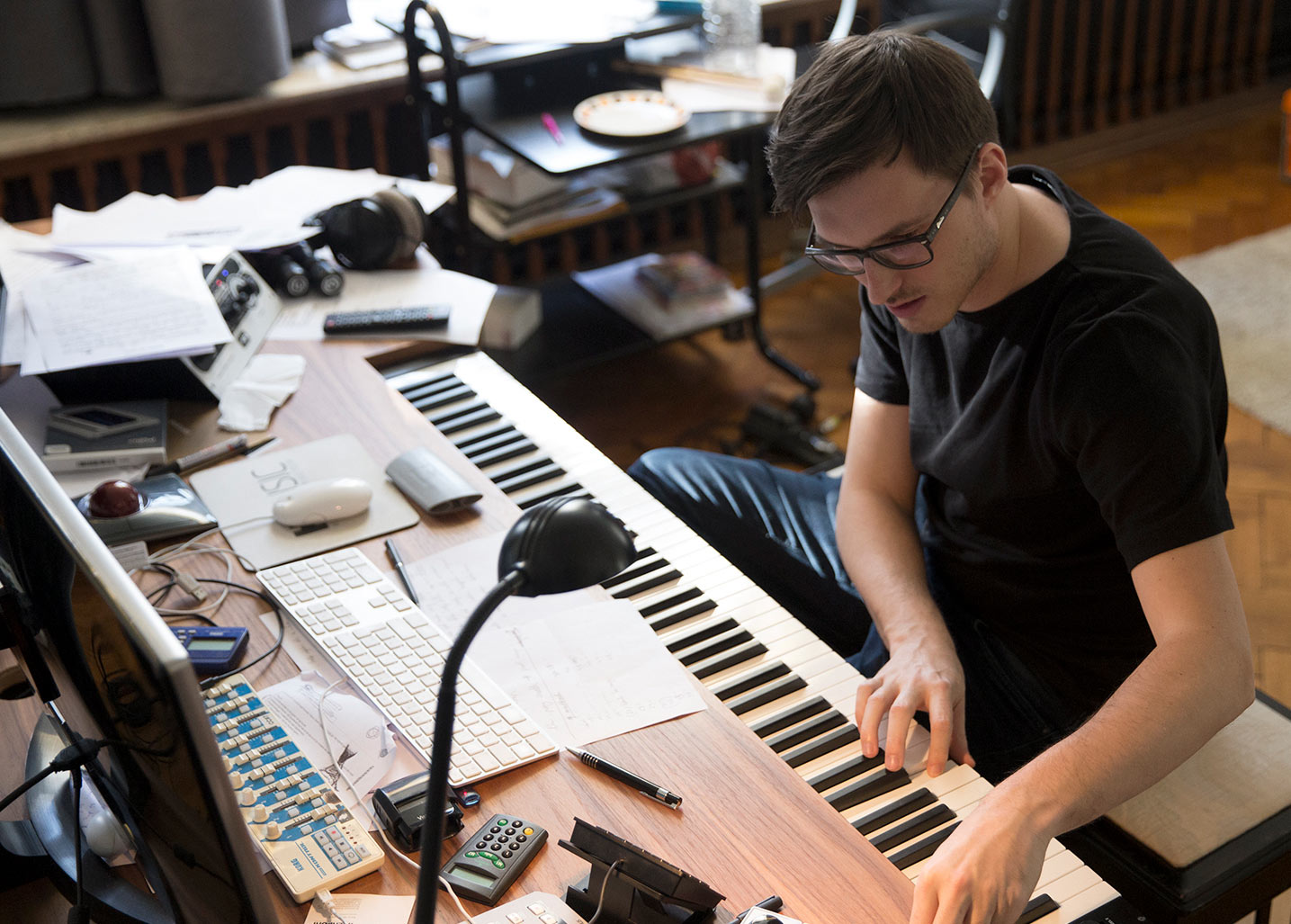 HANNES DE MAEYER BY SANDER BUYCK
HANNES DE MAEYER BY SANDER BUYCK
Alan Menken!
That’s my hero! [laughs] Well, I have several heroes but he’s one of them, definitely. ‘The Little Mermaid’, ‘Beauty and the Beast’, all those Disney movies where music is, of course, very important. From a young age, I was in awe of all that music. I listened a lot to it and then tried to play it.
When I was really young I went to Disneyland in Paris with friends of my parents and I saw in the shop a big book with all the notes and all the songs. I wanted the book so bad! I was not polite, I was like crying and stuff. Just to say I was already obsessed with that music and I wanted the piano book to play the Disney songs.
Later, when I was in secondary school, [for an assignment] for the music class I chose to write about film music. I also let them hear my favourite tunes by composers like John Williams and Harry Gregson-Williams that I had burned on a CD.
In my last year, I did an essay about the music of ‘The Lord of the Rings: The Fellowship of the Ring’. I had watched the movie hundreds of times [laughs] and I wrote a complete guide about the music.
Do you play any instruments on your own scores?
Yeah, when there’s some percussion I try to record percussion here and there. My drum hasn’t been set up for years now, so I’ll usually ask a drummer because I’m a little rusty in playing the drums [laughs]. I could do it, of course, but it’s easier and better to use a professional player. I play the piano and all the other instruments that are programmed on my computer.
Because I’m a pianist, as a composer, I play music and I improvise until I feel it’s good and then I start from there.
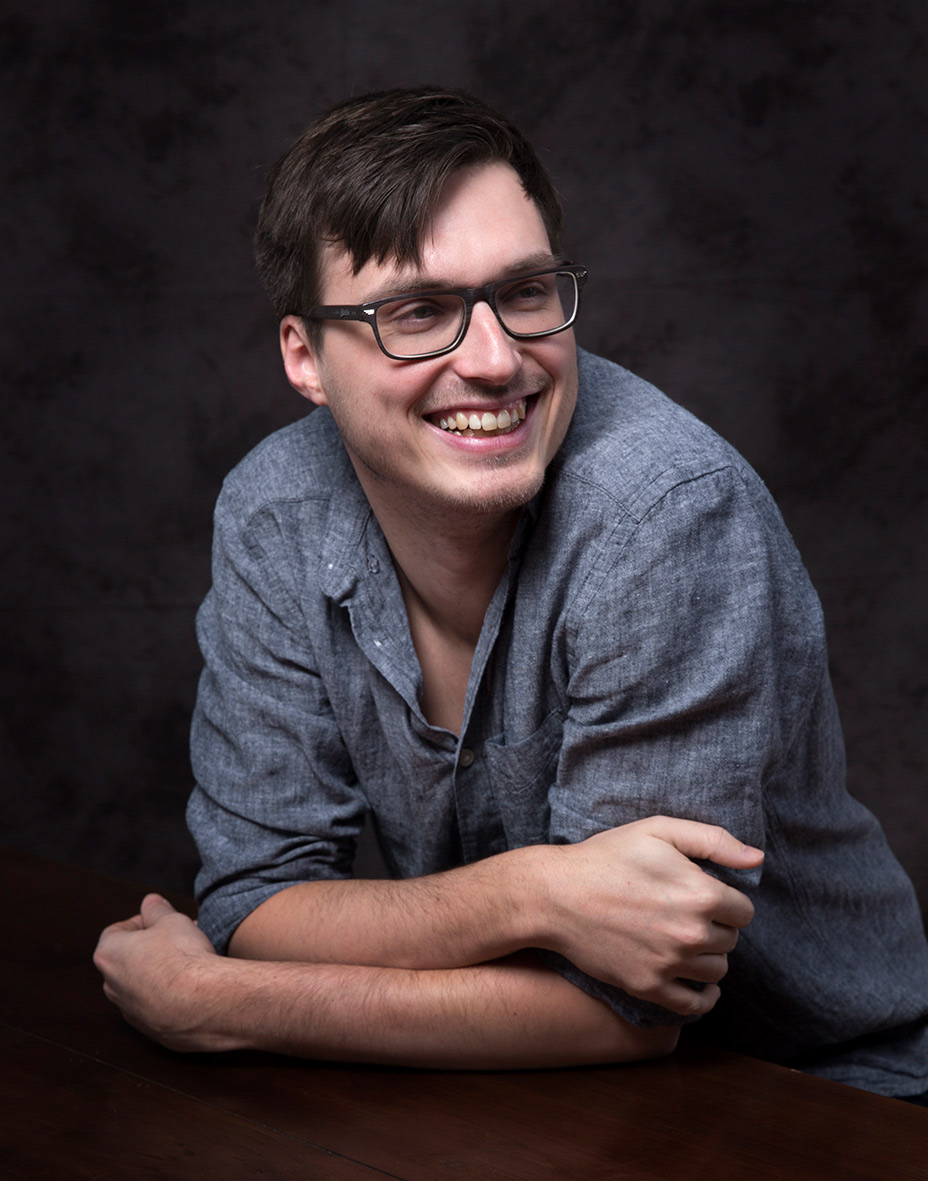 HANNES DE MAEYER BY SANDER BUYCK
HANNES DE MAEYER BY SANDER BUYCK
You’re quite a versatile composer. You compose in styles such as orchestral, modern electronic, 80s electronic, instrumental, and so on. But what is your preference?
I like to be versatile and I like to do different things because you can dig deeper in a certain style or in certain sounds. I think that’s what attracts me also to making film music – that it’s not the same every time.
In ‘Gangsta’, there is no real orchestra or real instruments, it’s just programmes. But on the other hand, there was ‘Torpedo’, where it’s only the orchestra and then nothing digital. But I don’t think I have a preference. But, of course, considering the music I was listening to in Disney movies and stuff like that, I have a big love for orchestras, strings, orchestration, etc.
I think it’s the combination of both – or sometimes separate – that makes it so interesting for me. So it’s hard to choose.
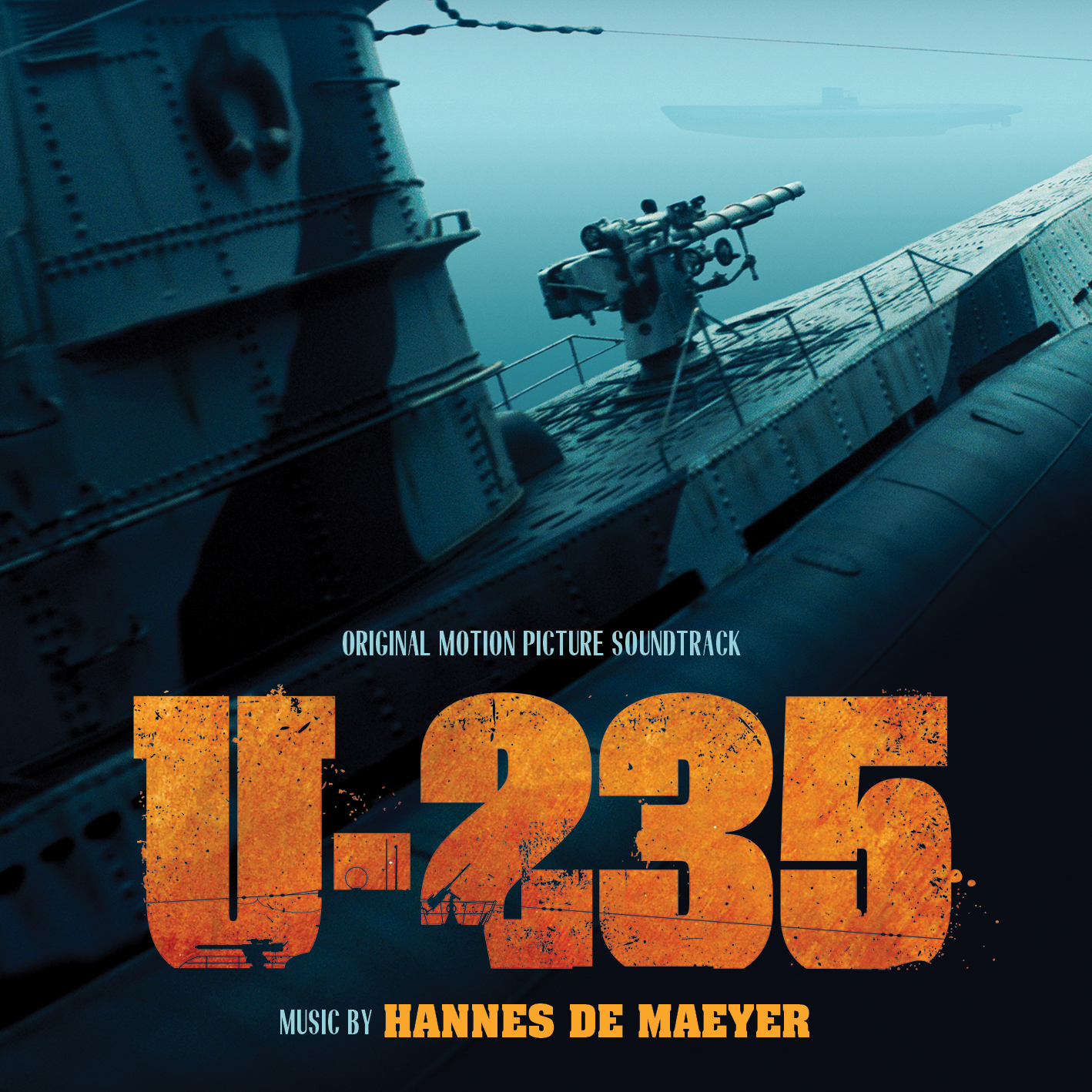
‘Torpedo’ must have been an amazing opportunity for you then, as it’s such a bombastic, rich, Hollywood-sounding score.
That was definitely a dream project. I had so much fun writing for it. They don’t make projects like that here in Belgium. It was a really nice opportunity to make music like that.
Also because I’m a huge fan of Michael Giacchino. I had listened to his ‘Medal of Honor’ soundtrack a lot of times. I really love those soundtracks. And then ‘Torpedo’ came around and they wanted WW2 action music. So that was a bit my homage to that kind of music and it was so fantastic to finally write it. And also to see how difficult it is to make [laughs]. Because it was really hard work. It’s so many notes and so much to write. It was a challenge, but a really fun one.
How did you get the project?
It was actually through the producers. I’ve known them for a very long time and they like to work with me and they’re always – I hope [laughs] – happy with the results. They were on board for the first feature film of Adil El Arbi and Bilall Fallah, called ‘Image’. They also produced ‘Black’ and ‘Gangsta’. So they proposed me to the director.
You worked on a number of projects with Adil El Arbi and Bilall Fallah. What attracts you to the projects that they bring to the table? What makes you come back every time to collaborate with them?
First of all, I did a lot of projects with them.
Secondly, one of the producers on ‘A Team Productions’ [‘Image’, ‘Black,’ Torpedo’, Gangsta’] is Hendrik [Verthé]. When I was in my last year of conservatory, I wanted to do my final project about the making of film music. I had to investigate how to make the results sound really realistic and enhance the samples with the use of certain real players.
So I wrote to the film school’s final year [students], and he was in his last year, making a short movie. He wrote me back. So that was our first collaboration – him as a director and me as a composer. When he graduated the year after, he chose to found ‘A Team Productions’ with his partner and since then we’ve worked on a lot of projects.
They’re more like friends at this point because we’ve worked together so much and also the projects they bring to the table are interesting. They are producers who are willing to take risks. For example, with ‘Torpedo’, as I said, it was never done before in Belgium. All the other producers had said, ‘No, that’s impossible.’ And ‘A Team Productions’ have the balls to say, ‘Yeah, fuck it. Let’s go for it. We’ll get there.’ They are really brave.
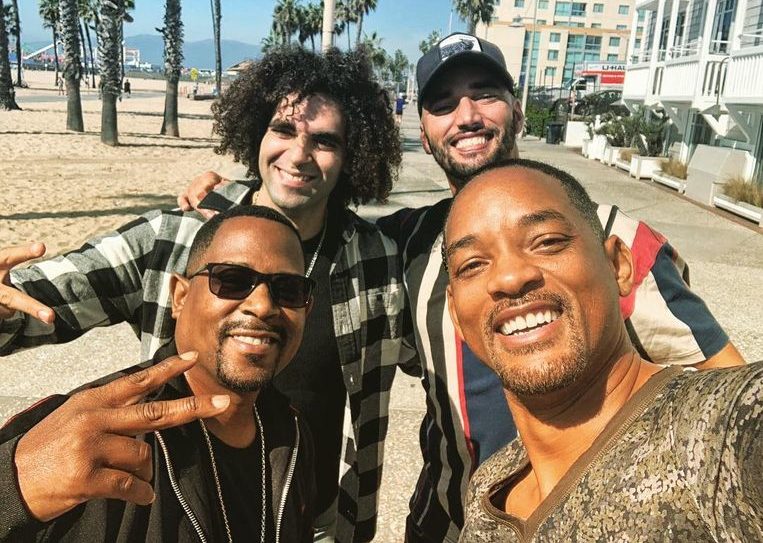 ADIL EL ARBI AND BILALL FALLAH WITH WILL SMITH AND MARTIN LAWRENCE DURING THE FILMING OF ‘BAD BOYS FOR LIFE’. ©INSTAGRAM
ADIL EL ARBI AND BILALL FALLAH WITH WILL SMITH AND MARTIN LAWRENCE DURING THE FILMING OF ‘BAD BOYS FOR LIFE’. ©INSTAGRAM
It sounds like you guys are growing together at the same time.
Yeah, exactly. Also, I think that’s because we did the first feature of Adil and Bilall. It was not only their first feature but the first also for mostly everyone who worked on it. It was one family that gives everything to the projects so that was really nice.
For example, the DOP, Robrecht Heyvaert, he grew so much. He recently did ‘Bad Boys for Life’ with Adil and Bilall. So it’s nice to see everybody grow. It’s like a small family.
Do you ever get into heated arguments due to creative differences?
Sure. We try to keep it chill. But at the end of the day, the big chief is the director, of course. But, sometimes there are differences in artistic views. Then I try to convince them – sometimes that works, sometimes that doesn’t work. But that’s part of the game.
I’ve never had any director to fight. It’s always respectful. But, of course, when I’m convinced of a certain way the music should be in a certain scene or I’ve made something that I think it’s perfect and they want me to change it, it always hurts a bit. Not personally, but it’s like, ‘Argh!’ [laughs] But, of course, that’s the way it goes. It’s part of the job. You have to leave your ego outside and just think, ‘OK, let’s make something different and let’s also make it work out.’
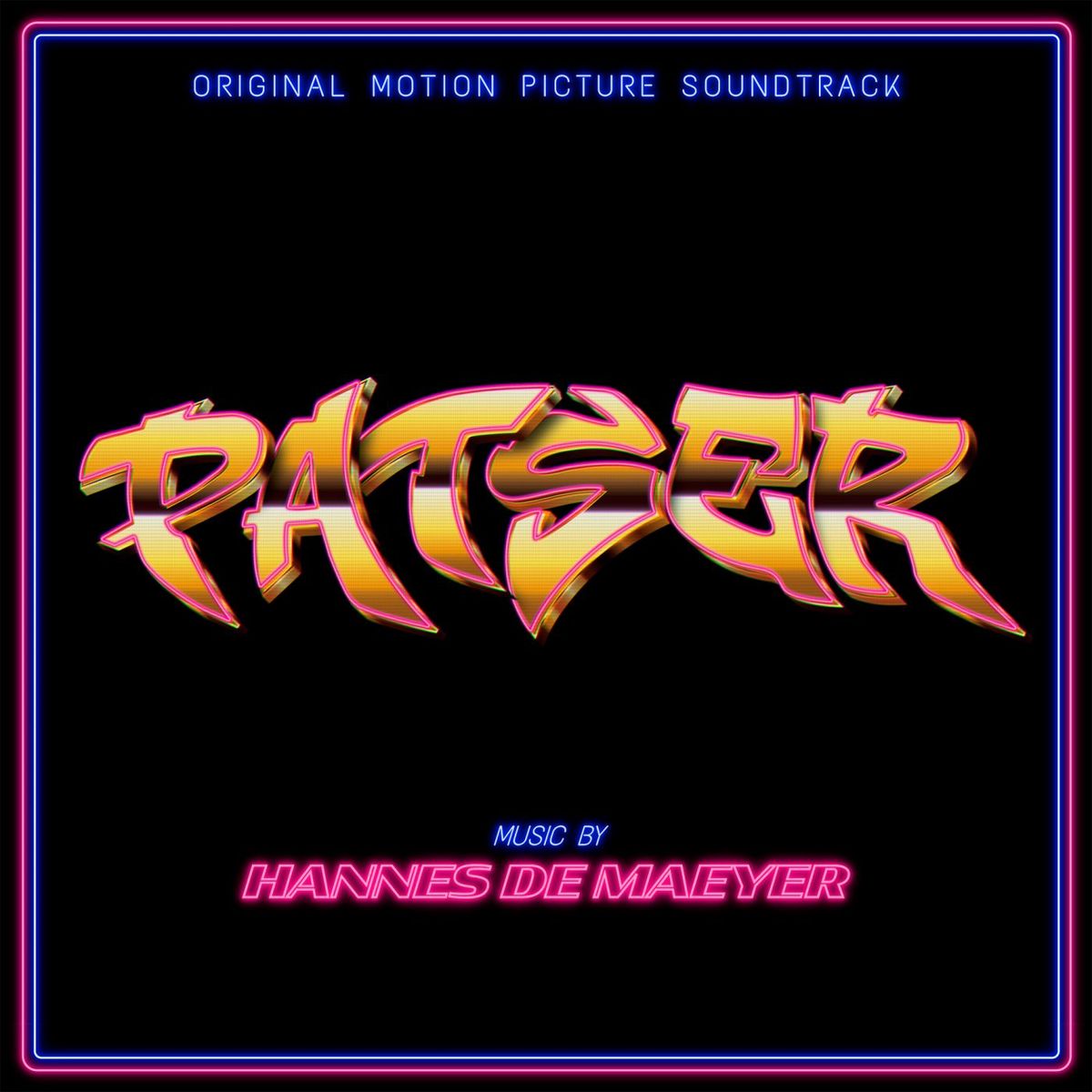
What about ‘Gangsta’? In recent years, we’ve seen a revival of the 80s electronic sound. How did you guys come up with this direction for this score?
All credits to Adil and Bilall for giving the first spark of the idea of going 80s. The style of the whole movie and the script is all in that 80s colourful style, with a games vibe. I think the briefing was 80s electronic music, but also games, flashy, over the top. Then I did my first proposals and they loved it. So we continued working on that route.
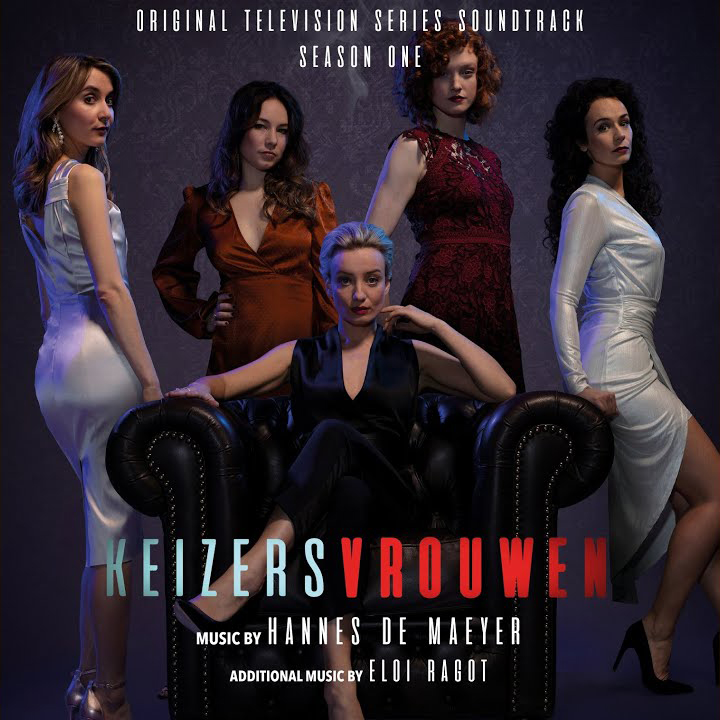
In ‘Women of the Night’, the score is most of the time tense and it supports the continuous tension throughout the series. How did you come up with the soundscape for this project?
It involved a lot of talk with the creator of the series. We discussed that there are three worlds: the women, the underworld, but also the family. He wanted to have different things for those three worlds, but at the same time to link them. And I think he wanted it to be not too symphonic. And I felt the same. It needed to be sometimes between music and sound design, slowly evolving, not always in your face.
What I did was write three-four themes for the different worlds which I sent to them and the directors, and they liked them. Actually, I don’t think they didn’t like any demo, which is really rare and I think all those themes were used in the actual series. But for me it was important to link the worlds using the same sounds or the same harmonic language so they can be interlocked. For example, the family theme I’d link with a sound from the women of the night world and it would become something different.
The music is, indeed, not in your face. Was that the intention of the directors as well, for it to take a step back?
Yeah, indeed. And one of the directors, Dries Vos, he’s a big fan of slowly building and building. There’s one track on the soundtrack – I think it’s from the end of episode 3 or 4 – that repeats more or less the same chords, but it’s building and building. That was something he really wanted.
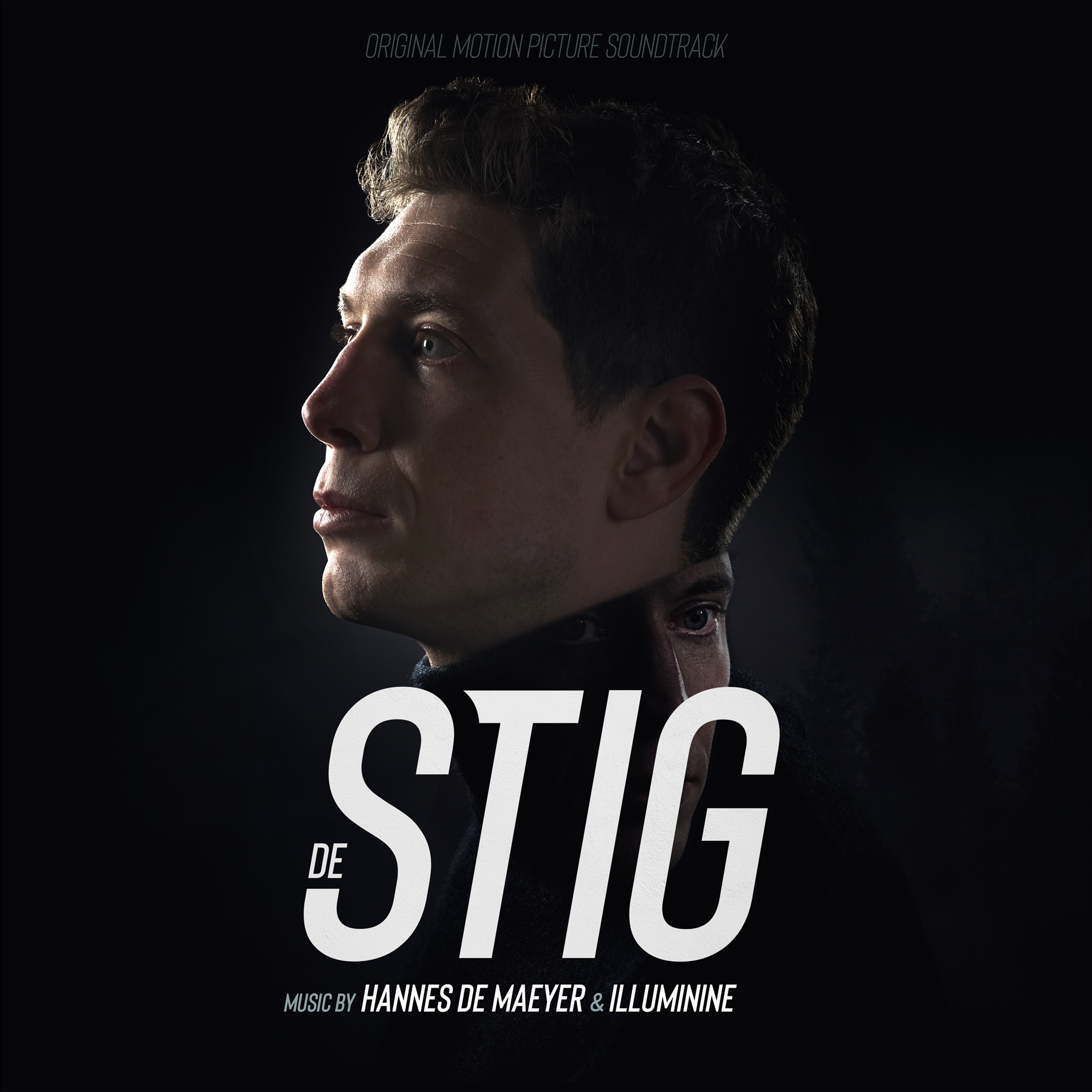
Your most recent project is the documentary ‘De Stig’, about the rehabilitation after an accident of the cyclist Stig Broeckx. What attracted you to the project?
It’s almost fiction. He had an accident and all the doctors said, ‘Yeah, he’s going to be in a coma for the rest of his life.’ or ‘He’s never going to be able to walk again.’ And through some miracle, he wakes up but he can’t do a lot. He’s a professional sportsman and he has the power to do all those exercises. He grows and keeps on rebuilding himself. At the end, he can ride a bike again.
I wanted to make music for that because it’s such an amazing story, it’s crazy. Also because I’m not a big cycling fan – it’s not like I stay at home on Sunday to watch cycling – but the story goes further than that world. It’s so universal and he is such a wonderful and inspiring person.
You created the score together with Illuminine (Kevin Imbrechts). How did you manage to collaborate well and merge your own individual styles for this score?
It was an interesting collaboration. I’m a pianist and he’s more guitar-oriented. But also, there are similarities, like making atmospheres. What we did was, sometimes he added guitar things to pieces I’d written, and vice versa.
I didn’t know him before, but he’s such a nice guy and we get along so well. It was a good collaboration because I’m not a guitarist and you come up with different sounds and different results than you’d do on your own.
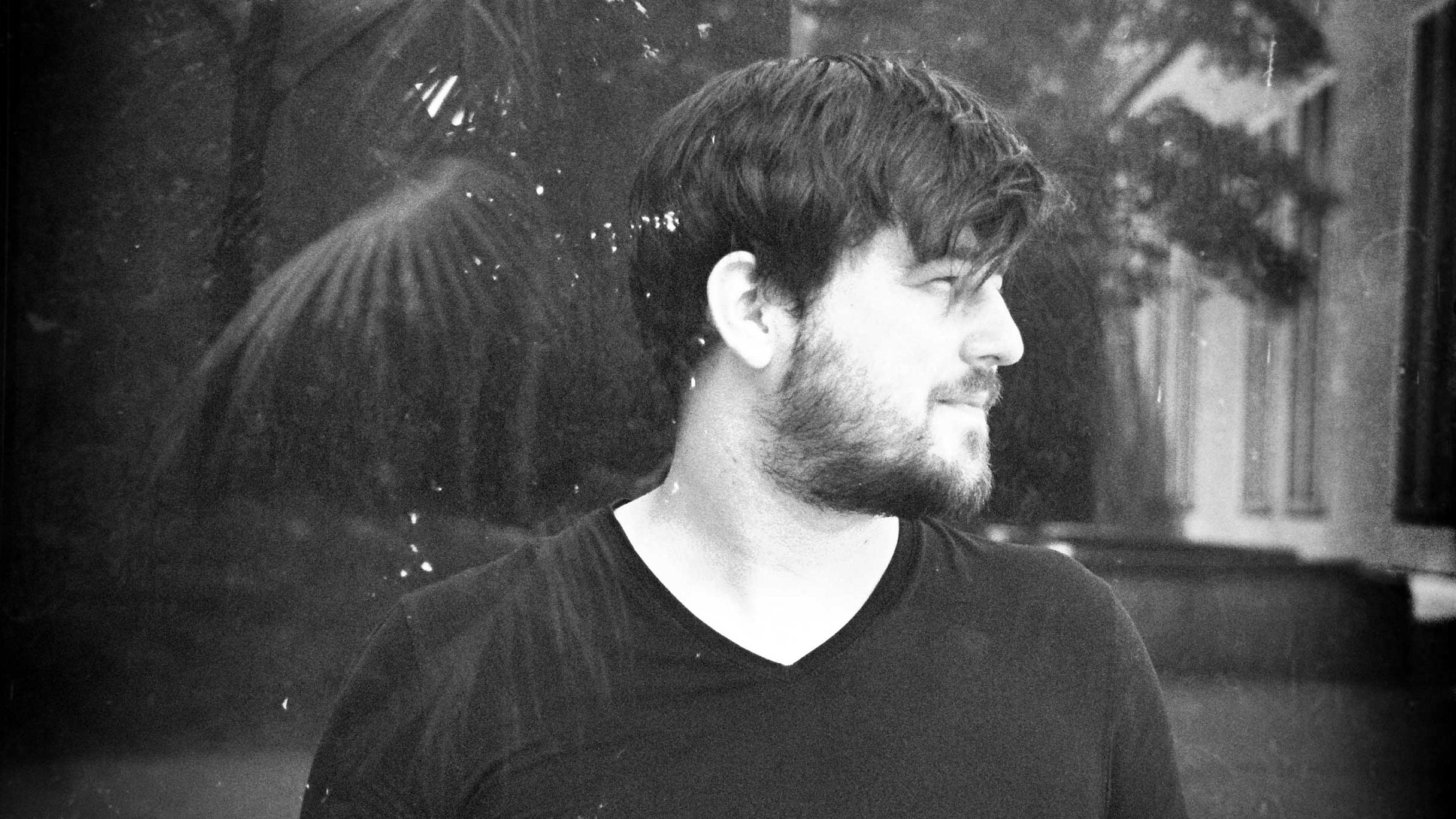 ILLUMININE (KEVIN IMBRECHTS). ©DESIREE ROUSSEAU
ILLUMININE (KEVIN IMBRECHTS). ©DESIREE ROUSSEAU
Did you guys have any disagreements in terms of the musical direction?
No, not at all. Kevin’s so easy going. He’s one of the nicest and calmest persons I’ve ever met. We made the music in January. On the 7th January, I became a dad for the first time, so it was a hectic period. For the music, we divided the pieces and sent them to each other. And then we enhanced them. So there were no fights.
The director of the documentary asked for us to meet because he had heard Kevin’s music and he thought, ‘Ah, that would be a nice sound to have in my documentary.’ He asked me, ‘Is it OK? Do you want to collaborate?’ And I said, ‘Of course.’
I had done movies and documentaries before so I had the experience. It’s something different to making music for like a CD. It was good for Kevin to have someone who had experience with that. I could guide him a bit with all the technical stuff and how to name things. You need the same system otherwise you get lost. In the beginning, he sent me files but with no timecode or some name. In the beginning, he didn’t even insert the movie in his project so I said, ‘No, no, you have to watch the movie before.’ [laughs]
But it was a wonderful collaboration and I’m really proud of the results. That’s the most important thing. I think we made something special and it will always be linked with my baby girl. It was in between the diapers that I was making the music [laughs].
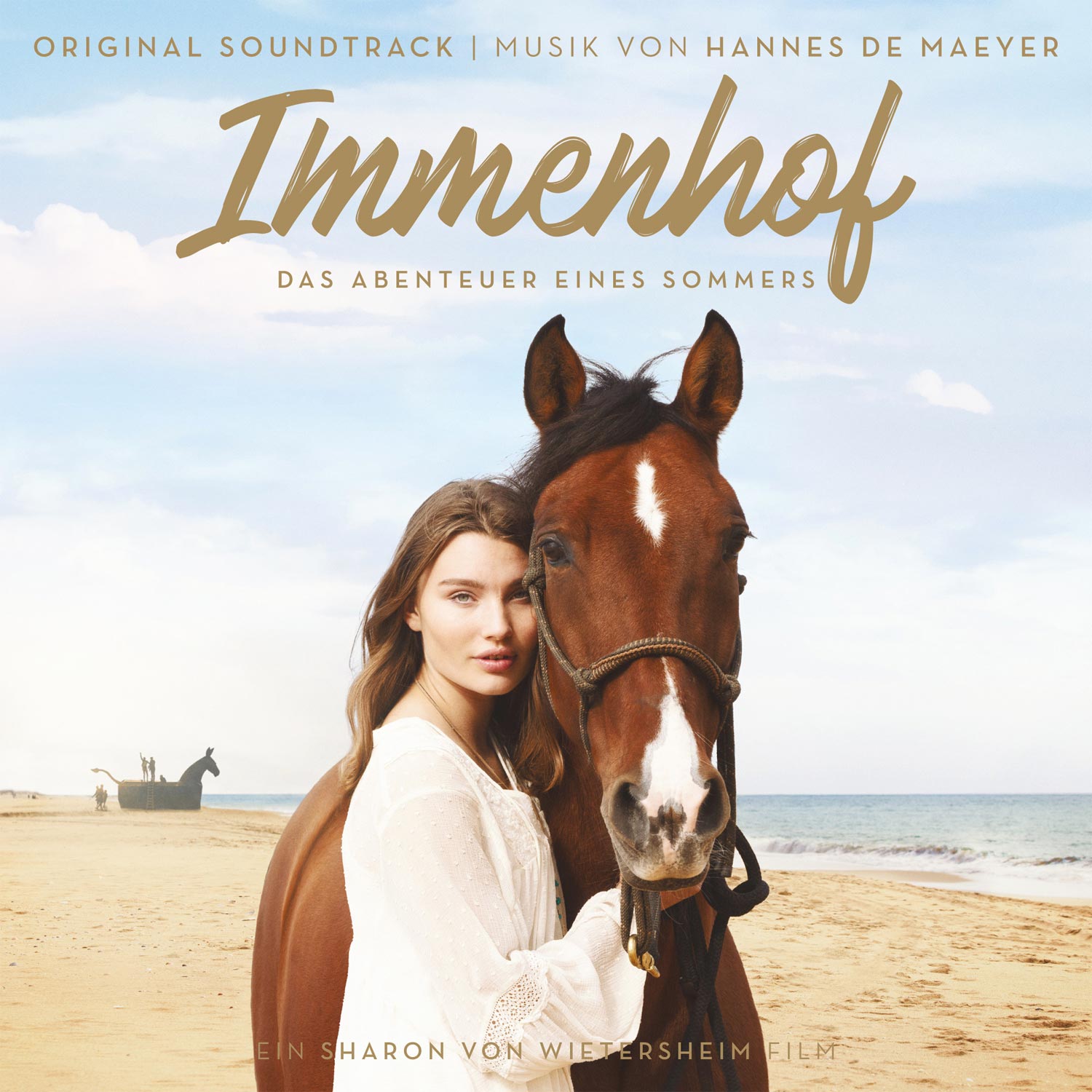
You’ve worked on a bunch of fantastic projects and I’m sure you’ve enjoyed all of them but is there a particular one that you’re most proud of so far?
That’s hard. It’s like choosing between your children. It’s really hard also because they are so different. ‘Torpedo’ was something that I’m really proud of for the reason’s I’ve mentioned. I think I’m also really happy with ‘Black’. I was really happy when we mixed it. It’s difficult to choose because every project is so nice.
‘Image’ is maybe not on the top of my list, but I enjoyed working on it and it was the first movie. A lot of things could’ve been better but it’s a learning experience and if I hadn’t had that I wouldn’t have made the things that came [afterwards] in a certain way, so it was a learning school.
Any exciting upcoming projects?
Yes! I’m currently working on Adil El Arbi and Bilall Fallah’s newest project called ‘Rebel’. It will be released in 2022.
I will also start working on the sequel to ‘Immenhof – Das Abenteuer eines Sommers’, titled ‘Immenhof – Das Grosse Versprechen’.
‘The Racer’ is another project I’ve worked on that will premiere in Belgian theatres on 9 September.
Stella Lungu
Stella is the Editor-in-Chief of The Cinematic Journal. She is also the Managing Director of Wolkh, a PR, Marketing and Branding agency specializing in Film, TV, Interactive Entertainment and Performing Arts.
An Interview with Anna Drubich
Anna Drubich is a Russian-born composer of both concert and film music, and has studied across…
A Conversation with Adam Janota Bzowski
Adam Janota Bzowski is a London-based composer and sound designer who has been working in film and…
Interview: Rebekka Karijord on the Process of Scoring Songs of Earth
Songs of Earth is Margreth Olin’s critically acclaimed nature documentary which is both an intimate…
Don't miss out
Cinematic stories delivered straight to your inbox.
Ridiculously Effective PR & Marketing
Wolkh is a full-service creative agency specialising in PR, Marketing and Branding for Film, TV, Interactive Entertainment and Performing Arts.

